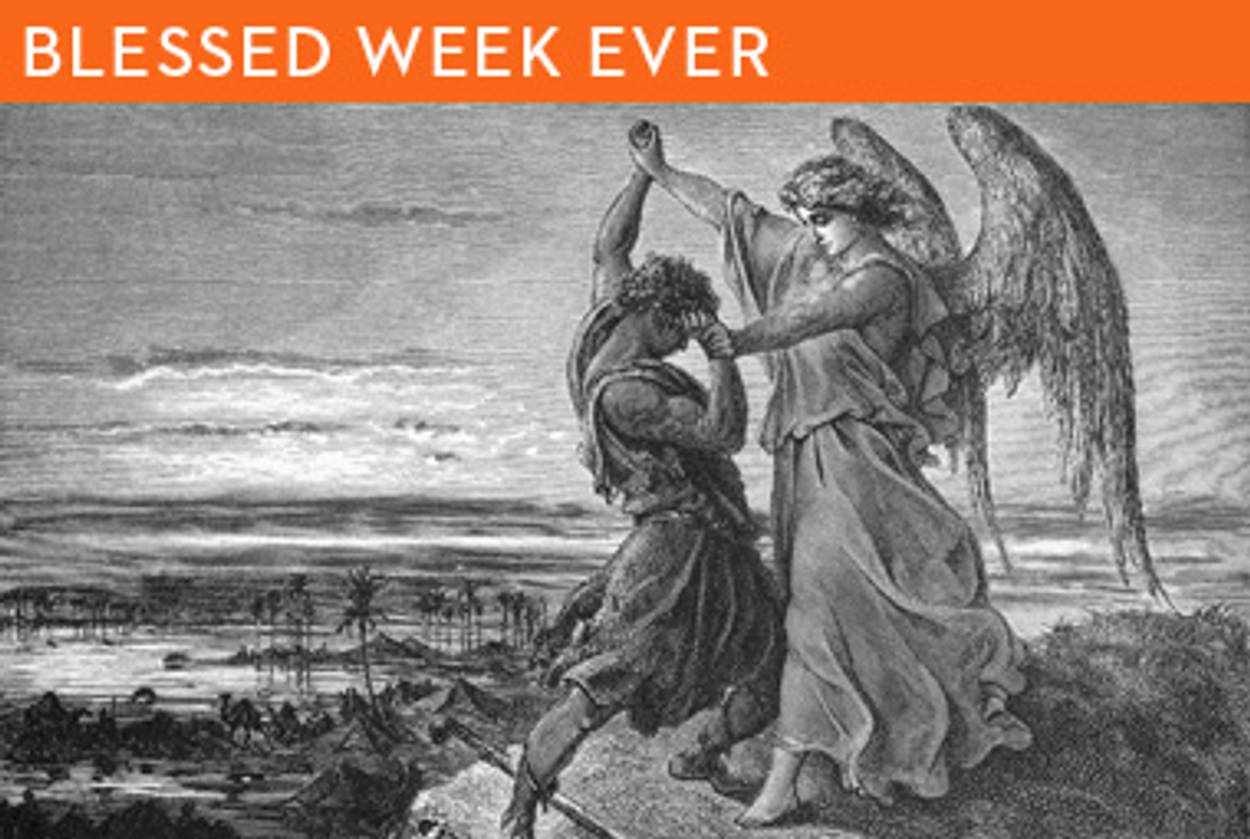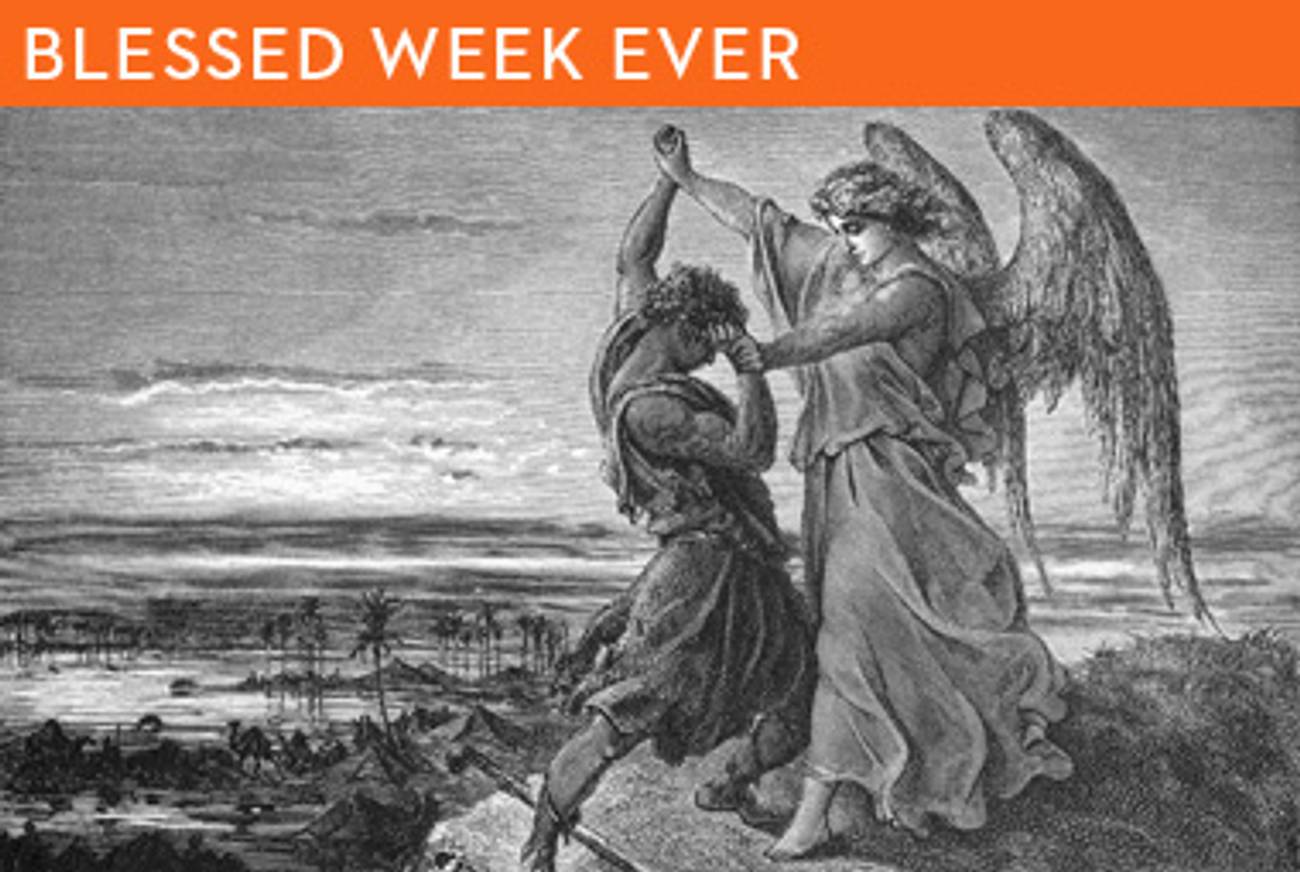The Avenger
A haftorah of wrongs and fights




Michael Kohlhaas, a novella by Heinrich von Kleist, so moved Franz Kafka that he devoted one of his very few public performances to reading sections of it. He could not even think of the tale, he said, “without being moved to tears and enthusiasm.” It similarly touched E.L. Doctorow, who in Ragtime transformed its eponymous character into a jazz pianist named Coalhouse Walker.
Though based on 16th-century events and written two centuries ago, the story of Michael Kohlhaas resonates still. The hero, a fair but rigid Brandenburg horse dealer, walks his horses through Saxony one day and is detained by a wicked aristocrat who fraudulently asks Kohlhaas for a passage permit. Suspecting something isn’t kosher, Kohlhaas nonetheless has no choice but to obey the noble, and he agrees to leave behind a pair of fine horses as collateral. When he returns and discovers that the horses have been abused, he demands satisfaction. When satisfaction fails to materialize—the aristocrat has a few powerful relatives that keep him just above the law—Kohlhaas goes mad. He forms an army of renegades, devastating anything and anyone standing in his way. He murders and pillages and burns, ignoring even the pleas of his idol, Martin Luther, who comes preaching mercy and compassion.
Reading the a beautiful and affordable Melville House reissue of the novella a few weeks ago, I, too, felt like weeping. For someone swaying on the cusp of modernity, von Kleist is astonishingly adept at portraying the dark psychological abyss of a man driven mad by a futile quest for justice. Even as I wished Kohlhaas, a wealthy man, would forget all about his ill-treated horses, go home to his lovely wife, and unwind with a nice hefeweizen, I found myself cheering silently with each fresh slaying. The baddies were getting their comeuppance, I told myself. Grievances were redressed.
It would spoil very few of the pleasures of this fine book to divulge that Kohlhaas meets an unhappy end. The novella having been written by a German, that is a foregone conclusion. But unlike some other German literary heroes whose untimely demise brings a cool breeze of relief to the long-suffering reader—the young Werther comes to mind—Kohlhaas’s woes are stirring. We know that his horses had been treated unfairly, that he is within his rights to demand compensation, and, later, to exact retribution. And yet, when he does, we weep. Revenge, we learn, is only appealing until realized.
In this week’s haftorah, the prophet Obadiah delivers a similar message. An Edomite who’d converted to Judaism, he couldn’t have joined the fold at a worse time: with King Ahab and Queen Jezebel on the throne, idolatry was rampant, and Obadiah spent the entirety of his considerable fortune hiding more than a hundred righteous men, shielding them from the wrath of the evil queen.
With so much clandestine action, he had to have been a man of few words; the book containing his prophesy is the Bible’s shortest, consisting of only 21 verses. Still, its message is strong. Railing against the Edomites, Obadiah warns his former people to fear the wrath of the righteous, and he prophesies that the children of Israel, should they remain faithful to their covenant, will obliterate their enemies.
“And the house of Jacob shall be a fire,” he warns, “and the house of Joseph a flame, and the house of Esau for stubble, and they shall kindle in them, and devour them; and there shall not be any remaining of the house of Esau.” Esau, Jacob’s hapless brother, is the father of Edom. And Esau’s descendants, Obadiah thunders, shall forever pay the price of his sins.
But just what had Esau done? The simple brother, he haplessly sold his inheritance to the conniving Jacob for a mess of potage. The kind brother, he was out hunting for his father’s favorite meat when the cunning Jacob pulled a neat trick and got his father to bless him instead. Why, then, not punish Jacob? And isn’t it time to give some love to Esau?
This week’s parasha argues otherwise. It tells of a remorseful Jacob, dispatching notes of reconciliation to the brother he had wronged, and of an angry Esau, responding by marching toward his brother with 400 men and a steely resolve to avenge his mistreatment. Jacob sends his family away and gets ready to fight. He doesn’t have to wait for long: as he sleeps, an angel appears and wrestles with him all night long. Finally, and at the cost of a dislocated hip, Jacob forces the ethereal being to surrender, and for his efforts he is given the name Israel, or he who has prevailed over the Lord.
The angel, tradition has it, represents the spirit of Esau, and in fighting him, the righteous Jacob settles his scores spiritually, not materially. This, the Torah teaches us, is why he is superior to Esau; the red-headed hunter can only right his wrongs with swords and mercenaries, and his idea of justice is blunt and bloody. Jacob understands—as have many, from Paul to Bono—that love is the higher law.
Kohlhaas never got that, and, too often, neither do we. We look even at supreme values such as justice as firm and impregnable. It’s good, then, to have an Obadiah to remind us that only God knows true justice, and that our best course of action, more often than not, is to wrestle with the angel so we don’t have to wrestle our brothers. Such advice makes for lousy German drama, but a very good life.
Liel Leibovitz is a senior writer for Tablet Magazine and a host of the Unorthodox podcast.
Liel Leibovitz is editor-at-large for Tablet Magazine and a host of its weekly culture podcast Unorthodox and daily Talmud podcast Take One. He is the editor of Zionism: The Tablet Guide.